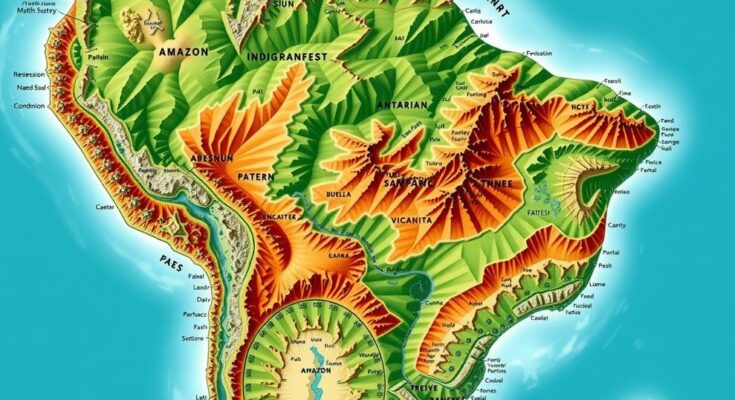The free-trade agreement between Canada and Ecuador threatens Indigenous rights by promoting increased mining activities without adequate consent, potentially resulting in environmental harm and social conflicts. Indigenous communities oppose the agreement, raising concerns over past abuses by Canadian mining companies, while the necessity for accountability and environmental protection remains paramount.
The free-trade agreement between Canada and Ecuador, signed on February 4, poses significant risks to Indigenous rights and territories. The National Confederation of Indigenous Peoples in Ecuador, alongside several civil rights organizations, has raised alarms about the potential for increased social and environmental conflicts resulting from this agreement, which aims to enhance trade, business, and investment connections.
Global Affairs Canada promotes the agreement as a cornerstone of its international trade diversification strategy, intending to eliminate barriers to trade between the two nations. However, many Indigenous communities in Ecuador strongly oppose the agreement, asserting that it was established without adequate consent and will exacerbate human rights violations and environmental degradation.
Canada is a substantial investor in Ecuador, particularly in mining, with approximately C$1.8 billion allocated to this sector. The open market encouraged by the free-trade agreement is anticipated to intensify Canadian mining activity, adversely impacting Indigenous populations and the environment. Numerous studies, including a 2023 report from Amazon Watch, highlight Canadian mining companies’ historical pattern of human rights abuses in Latin America.
Mining Watch Canada’s 2023 report to the House of Commons outlined the adverse effects of Canadian mining operations abroad, reporting incidents of violence, targeted killings, and criminalization of protesters. The rise of anti-mining protests in Ecuador, spearheaded by Indigenous communities, exemplifies the growing resistance against mining activities that encroach on their ancestral lands, often met with violence and intimidation.
Indigenous rights are being ignored in favor of economic interests, with foreign companies failing to comply with both the United Nations Declaration on the Rights of Indigenous Peoples and Ecuador’s constitution. The UN Declaration recognizes the vital connection Indigenous peoples have with their lands and mandates consultation regarding any territorial changes, an obligation increasingly overlooked.
Ecuador’s President Daniel Noboa’s administration has actively sought Canadian mining investments without fulfilling the legal requirements to consult with Indigenous communities. This disregard allows mining companies to operate without accountability for environmental and social damage, contrary to the promises made regarding human rights and ecological preservation.
Environmental leaders express concern that the free-trade agreement facilitates the expansion of mining in regions rich in biodiversity, adversely affecting Ecuador’s ecosystems and the communities reliant on them. The forecasted expansion of mining operations threatens critical biodiversity, leading to deforestation, pollution, and further contamination of fragile waterways, potentially harming the Amazon rainforest that plays a crucial role in climate stabilization.
Despite the free-trade agreement’s potential to foster economic relations between Canada and Ecuador, it is imperative that it prioritizes the safeguarding of ecosystems and the sovereignty of Indigenous peoples. Mining companies must be held accountable for their actions to mitigate human rights violations and environmental destruction.
The Canada-Ecuador free-trade agreement, while promising economic benefits, raises significant concerns regarding the rights and territories of Indigenous peoples. With an increase in mining activities expected, the potential for human rights abuses and environmental degradation looms large. It is crucial for the agreement to prioritize Indigenous sovereignty and ecological preservation to reconcile economic growth with responsible stewardship of the land.
Original Source: theconversation.com




